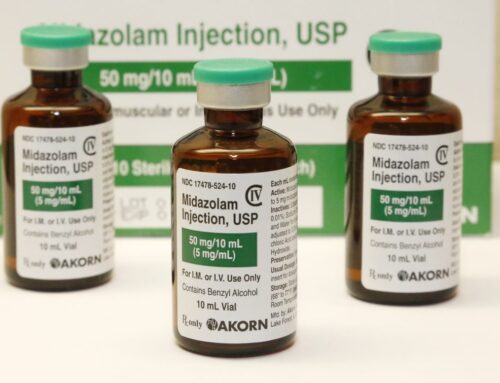Tussle over secrecy of lethal injection protocol shakes loose some records
Two years after an independent investigation into the Tennessee Department of Correction’s mishandling of drugs used in executions, the department’s first instinct when facing questions by the news media was to keep its new lethal injection protocol for executions confidential.
Gov. Bill Lee ordered an overhaul of the protocol after a stinging 2022 investigation report revealed missteps and sloppiness by prison leadership and staff and the companies they work with. For example, the state and the companies that provided the drugs did not comply with requirements to test drugs for contamination, which could lead to failed executions.
The Associated Press and other news organizations reported on Jan. 2 that the correction department would not release its new lethal injection protocol. The department claimed the document outlining the process for such executions fell under a public records exemption that allows the state to withhold the identity of people or entities involved in the execution.
But a week later, after the news reports circulated, the department said it would like to “revise” its withholding of the document and released a version with redactions. The redactions appeared to be of some of the job titles — although not all of the job titles — of people with functions related to the execution. For example, the job title of the person charged with keeping the records of the execution was redacted. The department did not explain why some job titles (such as “warden”) were not redacted while others were.
Tennessee has 46 people on death row. Executions have been on hold while the state revised its protocol.
In 2023, the state hired a new Department of Correction commissioner, Frank Strada, who previously served as deputy director of Arizona’s prison system.
Anti-death penalty advocates argue lethal injection too secret
Anti-death penalty advocates and others have argued that the state has kept too much about the state’s lethal injection executions secret, particularly about where the state buys drugs used in its lethal injection executions and lack of transparency about the efficacy of the drugs. They point to how faulty drugs have led to botched executions in other states.
Some states, including Tennessee, changed their public records laws to allow the source of their drugs to be secret. But it has been no secret that many states have turned to compounding pharmacies. Compounding pharmacies operate in a less regulated market — the drugs they make don’t have to go through an approval process by the Federal Drug Administration, for example. But they have become the go-to source for states for execution drugs after large traditional drug manufacturers stopped providing them.
State officials often claim that the sources of their execution drugs could dry up if they became public. Anti-death penalty advocates claim, on the other hand, that secrecy results in less oversight over the drugs, which can lead to faulty drugs that don’t work correctly and could violate the constitutional rights of the person being executed.
Lawmakers consider other execution methods
During the last legislative session, a bill was filed that would have removed the public records exemption that allowed the company names to be kept confidential, but the bill never made it out of committees.
State lawmakers have wrestled with expanding the methods of execution as problems have arisen in other states over lethal injection drugs. Lethal injection remains the primary method of electrocution in Tennessee, but in 2000, the legislature passed a law that allowed death row inmates to choose electrocution instead. Since then, one person was executed using the electric chair, and five others have chosen to be. A bill last year that would have added an execution option of a firing squad was set aside for cost.

